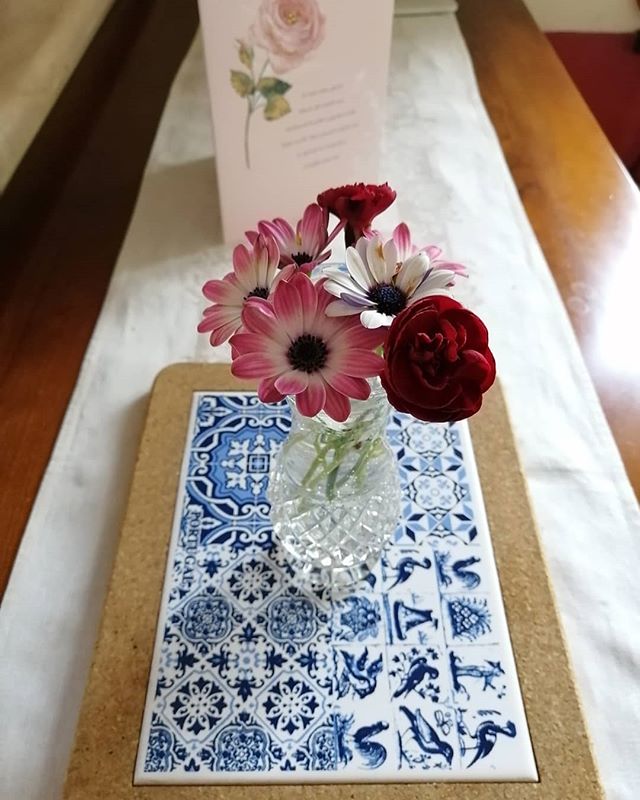This morning, we picked some flowers from our garden to brighten the kitchen. I think one of them is a carnation, the other a dianthus, but I am open to correction!
It brought to mind a passage in one of my favourite books, Elizabeth Gaskell’s North and South (1854):
‘… the sun-flower, shining fair,
Ray round with flames her disk of seed,
And many a rose-carnation feed
With summer spice the humming air…
Till from the garden and the wild
A fresh association blow,
And year by year the landscape grow
Familiar to the stranger’s child …’
These lines actually come from one of Britain’s Victorian poets, Alfred Lord Tennyson, a contemporary and friend of Gaskell. They remind me of how much we must enjoy and appreciate the present when we have the opportunity, all the while knowing that everything that is personal to us now may become familiar and beloved to someone else in the future.
I remember a few years ago travelling with our family and staying at a lovely old bed and breakfast, managed by a retired chef who had renovated a historic schoolhouse. The place was full of antique furniture, knick-knacks, and curiosities, tenderly cared for by their owner. He talked about how, in his final years, he hoped to preserve these antiquities for future generations to enjoy, almost like a ‘curator’.
It was a lovely thought, and one that I feel is captured similarly in Tennyson’s lines (even if in a more nostalgic tone).
🌺 What are the small things in your life that bring you joy? Do you regularly experience a sense of wonder, appreciation, or even nostalgia for them?
Sometimes our feelings associated with these small things (whatever they are – flowers, landscapes, familiar faces, indeed anything) can be the hardest to describe.
At such moments, I often revert to poems I know to help me express myself, or choose words with several layers of meaning, such as ‘meaningful’ or ‘wonder’, ‘awe’, ‘worth’ or ‘beauty’.
Whenever we are able to use even a few words with precision, thought, and feeling, they WILL be persuasive and leave a ripple effect on other people.




